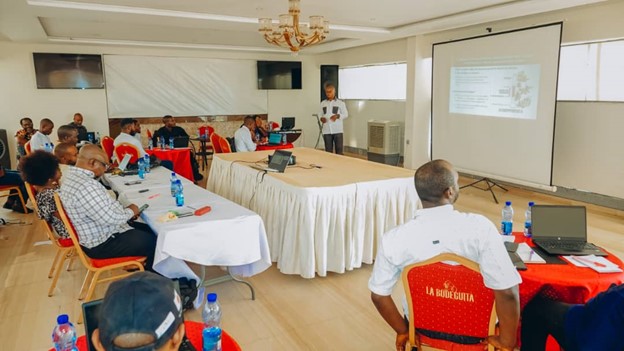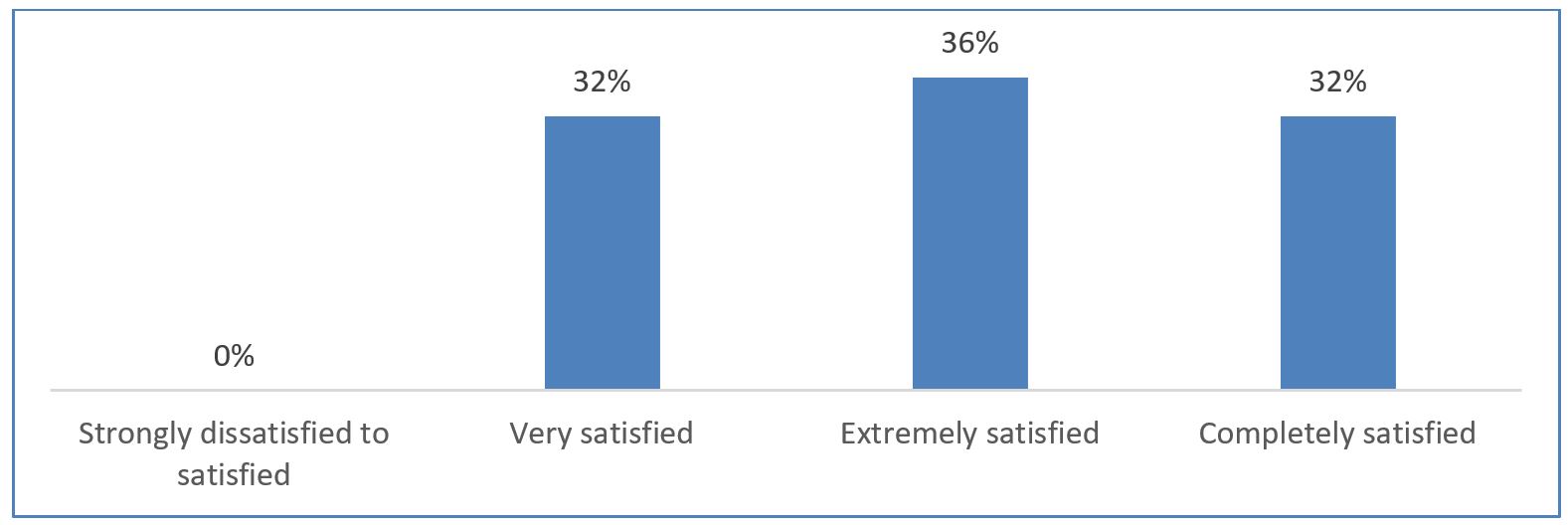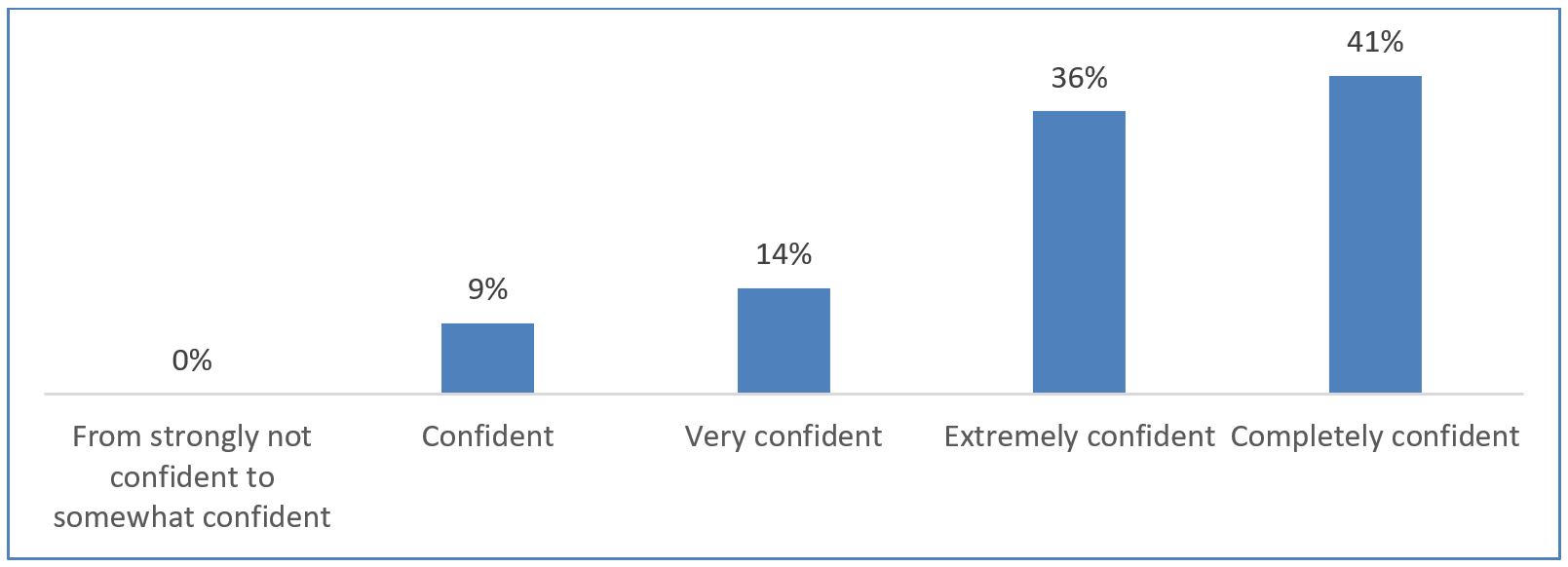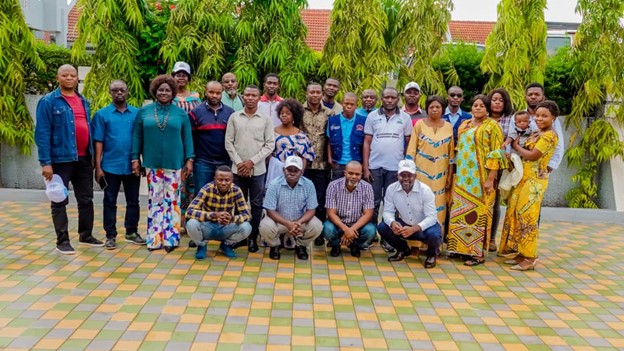By Justice Munthali, Napoleon Kajunju and Yohane Chideya
Tcham Hotel, overlooking Lake Tanganyika in the Eastern Democratic Republic of Congo (DRC), set the stage for a two-day training of trainers’ workshop, aimed at addressing micronutrient malnutrition through the promotion of biofortified beans and maize.
Held from March 21 to 22, 2024, the event was hosted by the Pan Africa Bean Research Alliance (PABRA) program of the International Center for Tropical Agriculture (CIAT) in collaboration with the International Institute of Tropical Agriculture (IITA).
The workshop convened local nutrition frontline workers to be trained as trainers under the World Bank-funded Integrated Great Lakes Agricultural Growth Project (PICAGL), with opening activities led by key figures, such as Charles Katangala from IITA in Kalemie, Adebola Awotide from PABRA’s Beans for Women for Empowerment (B4WE) project, and Justice Munthali, the Interim Nutrition and Food Technology Coordinator for PABRA.
Integrating creativity into capacity building, partnerships, and learning
The trainer’s workshop was meticulously crafted to foster creativity, collaboration and partnerships. Initially, a collaborative effort involving 10 national nutrition experts from organizations, such as the National Nutrition Programme (PRONANUT), Provincial Division of Health, World Food Programme (WFP), University of Kalemie, and IITA, under the guidance of two seasoned PABRA nutrition experts – Justice Munthali and Napoleon Kajunju, collated and developed tailored nutrition training modules and communication/promotional tools to address local needs and promote the consumption of biofortified beans and maize.
Subsequently, four local nutrition experts, integral to the material’s development, were appointed as lead trainers for frontline workers. Assisted by PABRA nutritionists, they conducted comprehensive training sessions to disseminate knowledge and concurrently evaluated the materials’ usability. Thus, this trainer’s workshop served a dual purpose: disseminating crucial information to trainers and eliciting valuable feedback to enhance the effectiveness of the developed materials.
Day one: technical presentations
The inaugural technical presentation was delivered by John Mugunga, the Provincial Coordinator of PRONANUT, shedding light on the intricate relationship between agriculture and nutrition. A pivotal message underscored throughout the session was the significant contribution of investing in agriculture and biofortified crops to enhancing nutrition.
Following a revitalizing coffee break, Flore Mukiamuni, a WFP nutrition expert, took the stage to expound upon the merits of biofortified crops in combating micronutrient malnutrition. Mukiamuni’s passionate address struck a chord, emphasizing the pressing need to debunk myths hindering the uptake of these vital crops. A resounding takeaway from her presentation remains: “Biofortified beans and maize are pivotal in the fight against micronutrient malnutrition.”
Day two: technical presentations
Despite a minor delay caused by rain, day two unfolded seamlessly, with Napoleon Kajunju skillfully synthesizing the insights from day one’s discussions. Kajunju also seized the opportunity to deliver a presentation on Social Behavior Change Communication (SBCC) approaches aimed, strategically, at promoting the consumption of biofortified crops within different layers of the community.
Subsequently, the agenda shifted focus to a module addressing nutrition, food security, water, sanitation, and hygiene adeptly guided by Dr. Jean Guy Ngandu from the Provincial Health Division. Throughout this session, participants were reminded that establishing sound nutritional practices begins with fundamental hygienic habits. This segment underscored the inseparable link between nutrition and hygiene in the pursuit of optimal health.

Figure 2: Dr Jean Guy Ngandu from DPS (Division Provinciale de la Santé) facilitating a module on Nutrition, Food Safety and Water, Sanitation and Hygiene.
Engineer André Kalilo from the University of Kalemie delved into the intricacies of food processing, highlighting the importance of value addition and commercialization. His insights on maximizing production while upholding quality struck a chord with participants, paving the way for sustainable agricultural practices.
The day concluded with a culinary exploration led by Napoleon Kajunju, delving into local bean-based recipes and their potential for widespread adoption. Participants departed energized, equipped with a newfound appreciation for biofortified crops and a shared commitment to disseminate key messages within their communities.
Insights from workshop evaluation
As the workshop drew to a close, organizers facilitated an evaluation exercise aimed at gleaning insights from the planning and organizational processes, assessing the training atmosphere, and gauging the effectiveness of the sessions in fostering learning and determining post-workshop actions.
The evaluation results, depicted in Figure 2, highlighted that the training was largely well-organized, with all participants (100%) expressing comfort in interacting and collaborating with each other and 95% acknowledging the effective management of workshop logistics. Similarly, 95% of participants felt adequately supported throughout the training. However, areas for improvement were also identified. Nearly half of the participants (45%) felt that the venue’s proximity to the main road was not ideal. Additionally, some participants (32%) suggested that certain topics could have been explored in greater depth.
Furthermore, a significant proportion of participants (86%) expressed a need for additional material support to effectively implement the knowledge gained from the workshop. These insights will inform future planning efforts to enhance the overall effectiveness and participant experience for similar initiatives.

Figure 3: Workshop evaluation results suggesting, largely, that the workshop was well organized.
Further, participants were asked to assess the performance of the training facilitators in terms of clarity, engagement, and overall effectiveness. The results indicated that all local facilitators received high ratings, with 68% of participants rating their facilitation as “very good” (Figure 3). This feedback is encouraging, indicating that local facilitators can be relied upon to deliver excellent and quality work. Empowering local expertise to lead project activities may contribute to the sustainability of project initiatives beyond the project’s conclusion.

Figure 4: Rating of training facilitators.
Participants were also requested to rate their level of satisfaction with the content covered during the training workshop, using a scale from 1 to 10, where 1 represented strong dissatisfaction and 10 signified complete satisfaction. The results revealed that all participants expressed high levels of satisfaction, with 32% indicating that they were very satisfied, 36% reporting that they were extremely satisfied, and another 32% stating that they were completely satisfied (Figure 4).

Figure 5: Rating of satisfaction after training session
Participants were also tasked to conduct self-evaluation to assess their confidence in ability to apply and deliver effective training sessions during their regular work routines, using a scale from 1 to 10, where 1 represented strong lack of confidence and 10 represented complete confidence. Notably, none of the participants expressed low confidence levels. Instead, 9% felt confident, 14% very confident, 36% extremely confident, and 41% completely confident (Figure 5). This robust level of confidence among participants is encouraging, indicating their readiness to implement the training independently in their respective localities with minimal supervision.

Figure 6: Rating of confidence to deliver training materials to target beneficiaries in schools and health centers.
Conclusion: catalyzing a nutritional revolution
The workshop convened 27 enthusiastic participants representing diverse institutions, including PABRA, IITA, PRONANUT, Division Provinciale de la Sante, Zone de Sante of Tanganyika, WFP, APETAMACO, ADSSE, World Vision, and private sector members, such as Épicerie du Kivu.
The knowledge acquired by both organizers and participants has planted seeds of change, promising a brighter and healthier future for all.
Trainers were urged to integrate this newfound knowledge into their daily work routines to bolster sustainability in promoting biofortified crops. Additionally, organizers pledged ongoing support to the trainers by linking the PICAGL project with existing initiatives, such as the Global Affairs Canada (GAC) funded B4WE project, also implemented by PABRA.
In the words of IITA Officer-In-Charge in Kalemie- Charles Kitangala, let us carry forward the torch of biofortification, nurturing our communities with the nourishment they rightfully deserve. For it is through our collective efforts that we wield the power to transform landscapes, one nutritious harvest at a time.
For more details, contact:
Justice Munthali
Senior Research Associate- Nutrition │ Crops for Nutrition and Health
Pan Africa Bean Research Alliance (PABRA)
Alliance of Bioversity International and CIAT
Africa Hub – Malawi Office
P.O. Box 158, Chitedze Agricultural Research Station, Lilongwe
+265 (0) 991 267 997
J.Munthali@cgiar.org


